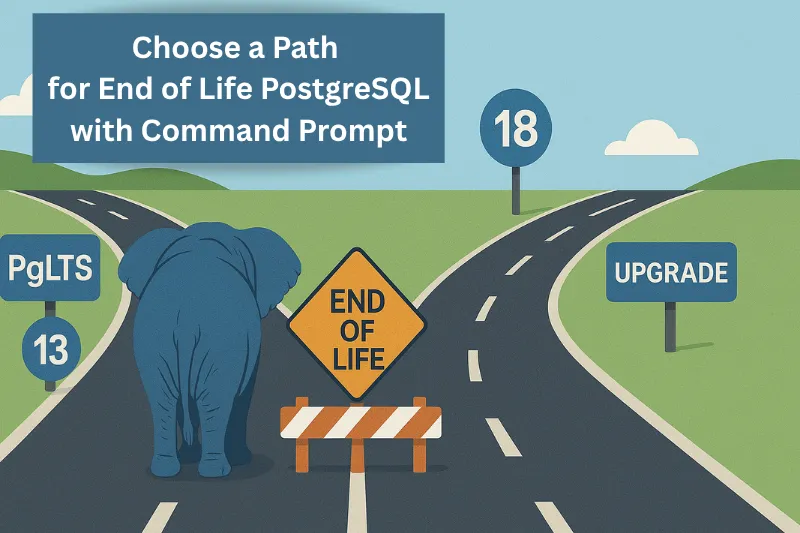
The PostgreSQL Global Development Group has released new versions across the supported release series, addressing critical updates and security improvements. While these releases represent standard maintenance updates, the timing brings an important decision point for PostgreSQL users: version 13 reaches end of life today, November 13, 2025.
A Quick Overview of the Latest Releases
The latest update cycle delivers the newest feature set in PostgreSQL 18.1, along with maintenance releases for earlier supported versions. Each release includes bug fixes, performance improvements, and security updates tailored to their respective versions.
Supported versions now available:
- PostgreSQL 18.1 (latest features and performance enhancements)
- PostgreSQL 17.7 (stable, production-ready)
- PostgreSQL 16.11 (mature platform)
- PostgreSQL 15.15 (long-established stability)
- PostgreSQL 14.20 (robust legacy support)
- PostgreSQL 13.23 (final release, now EOL)
The End of Life Reality for PostgreSQL
As of today, PostgreSQL 13 has officially reached its end of life. This means the PostgreSQL Global Development Group will no longer provide security patches, bug fixes, or support for new issues affecting PostgreSQL 13. For organizations still running version 13, this transition requires immediate attention and strategic planning.
If you're currently on PostgreSQL 13, you face a critical choice: upgrade to a supported version, or implement a long-term support strategy that keeps your infrastructure protected without forcing immediate migration.
Why This Matters for Your Business
Running unsupported database versions introduces real risk. Beyond the absence of security patches, you're operating without vendor support channels, community guidance, or the ability to leverage new features and optimizations. Additionally, your compliance standing may be affected, particularly if you're subject to regulatory requirements like FedRAMP, HIPAA, or DoD cybersecurity standards, including NIST 800-171, that mandate supported software versions.
Two Paths Forward
Option 1: Upgrade to a Supported Version
If your infrastructure and applications allow for modernization, upgrading to PostgreSQL 17 or 18 positions your organization for the future. Newer versions bring substantial improvements in query performance, replication capabilities, and security features. However, major version upgrades require careful planning, thorough testing, and validation to ensure compatibility with your applications.
Command Prompt can guide you through this process with comprehensive upgrade planning, including database migration services, rollback plans, and application compatibility testing. Our team has managed complex PostgreSQL upgrades for enterprise clients across federal, healthcare, and commercial sectors. We handle the technical complexity while you maintain continuity and performance.
Option 2: Maintain PostgreSQL 12 or 13 with Extended Support with PgLTS
Not ready to upgrade immediately? Command Prompt's PgLTS (PostgreSQL Long Term Support) solution provides an alternative approach. For organizations running PostgreSQL 12 or 13, PgLTS delivers continued security patches, critical bug fixes, and vendor support beyond the standard end-of-life date.
Command Prompt offers PgLTS packaging and support for organizations requiring extended stability. This approach provides breathing room for strategic upgrades, allows time for application refactoring, or bridges periods of organizational change. PgLTS maintains your security posture while preserving your existing infrastructure investment.
Your Next Steps
The November 13 EOL date isn't a deadline to panic over, but it is a decision point that deserves attention this month.
If you're running PostgreSQL 13 or planning to upgrade from any version, reach out to discuss your specific situation. We can help you evaluate upgrade timing, plan the technical approach, or implement PgLTS if that better serves your organization's needs.
The PostgreSQL ecosystem is strong because it allows organizations flexibility.
Choose the path that aligns with your business requirements, your technical capacity, and your risk tolerance. We're here to make whichever path you choose as smooth as possible.
Ready to discuss your PostgreSQL strategy? Contact Command Prompt today to explore upgrade planning or long-term support options for your organization.
